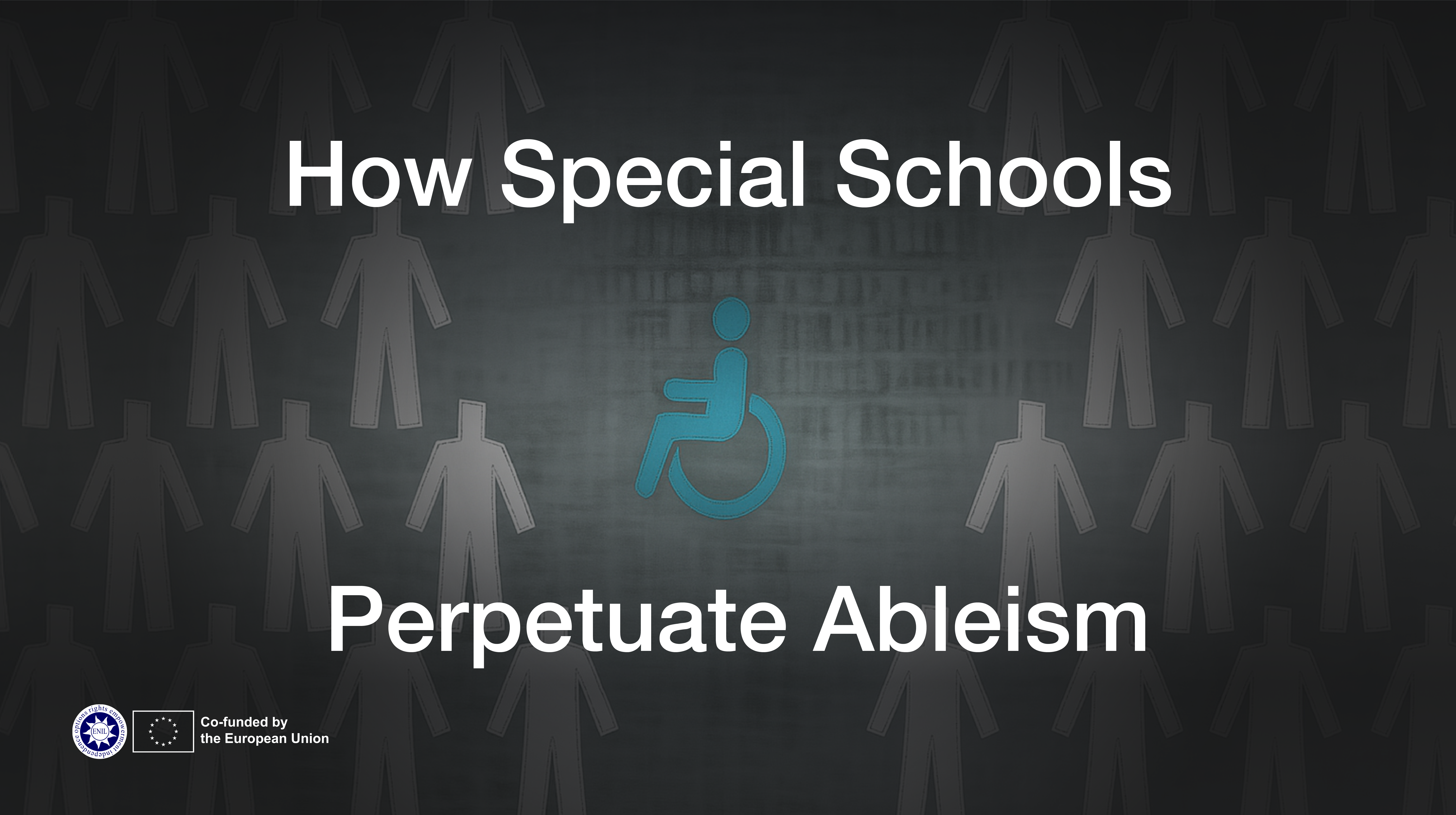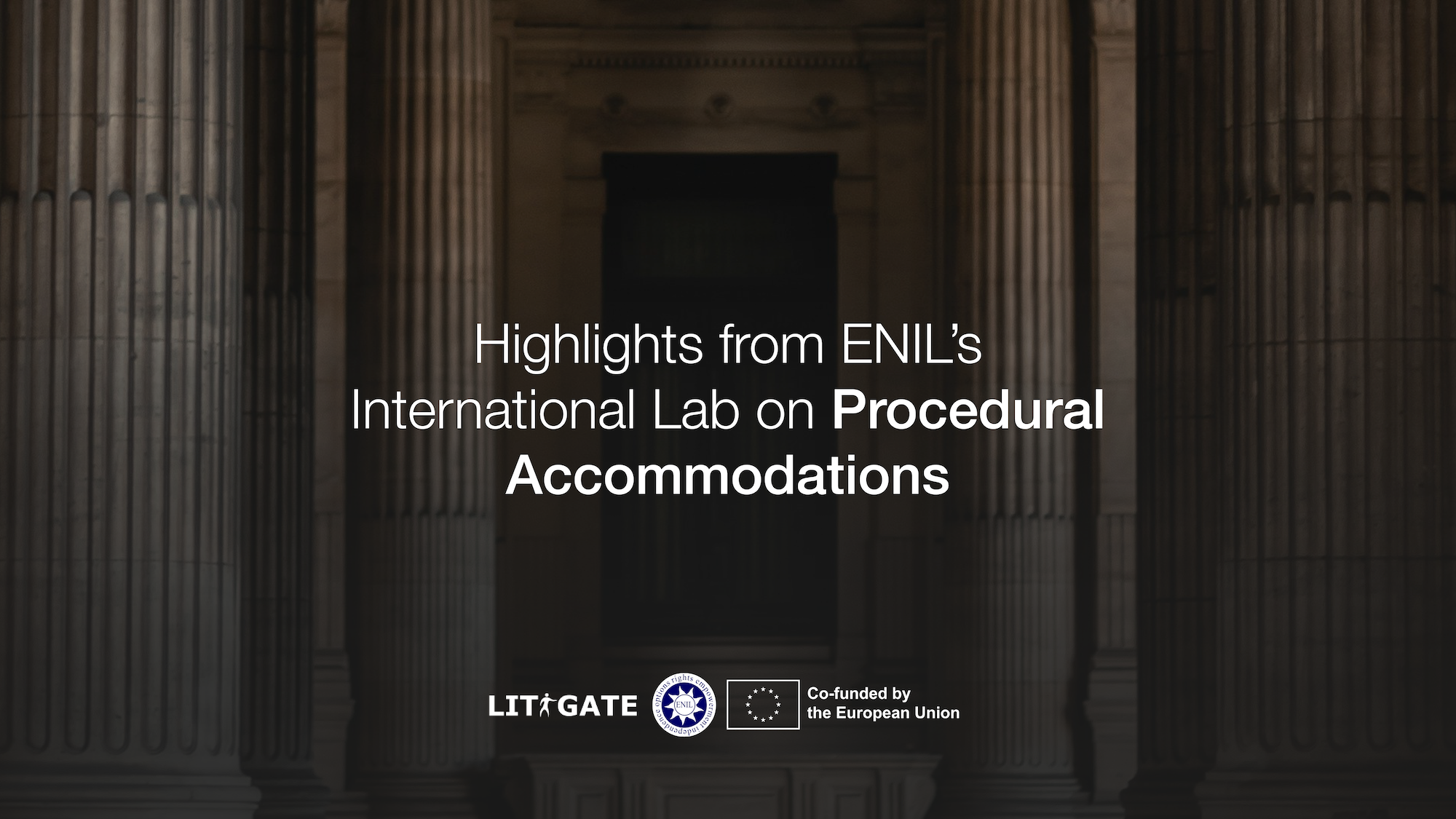On 13 March, the Association for Self-Advocacy from Zagreb, Croatia and ENIL co-organised a roundtable on ‘The Process of Deinstitutionalisation in Croatia and the European Pillar of Social Rights’. The roundtable was supported by the Office of the European Parliament in Croatia and brought together all the key stakeholders involved in the process of DI – disabled people and their organisations, service providers, academics, the Ministry of Demography, Family, Youth and Social Policy, the Office of the Ombudsperson for Persons with Disabilities and a representative of the European Commission.
The reasons we decided to organise the roundtable were several-fold. Firstly, having received a disappointing response to our joint letter to the Croatian Government, we wanted to create a space for discussion on ways to move forward with the process of DI. The fact that the Government had recently adopted a Law of Foster Care which strengthens foster care for adults with disabilities, the delay in using Structural Funds to support the process of DI and the general lack of political support for the process are all reasons for concern. At the same time, the ongoing European Semester process (which is now linked to the Social Rights Pillar) and the post 2020 Multiannual Financial Framework provide opportunities to address the ongoing challenges and ensure that future plans are better aligned with Article 19 of the UN Convention on the Rights of Persons with Disabilities.
Much of the discussion focused on the system of foster care for adults with disabilities, which had been the focus of a critical report by the Ombudsperson and was condemned by the CRPD Committee. Yet, the Government is increasing income for foster families and planning to place more disabled people in their care. Assurances were given that this would not be funded from the EU Funds, but the process will continue being supported by the state.
Other barriers highlighted were those to do with the position of the disabled person (i.e. the ‘user’) in the process. What the ‘user’ is experiencing, where they ended up, the kind of life they are living, is generally not looked at. An interesting piece of research was presented, for example, about the property rights of those using social care services. Interestingly, when it comes to large amounts of money involved (in case the person owns a property, for example), it is difficult to establish where the money went. The difficult position of those under guardianship was also highlighted, and the fact that it not easy to regain legal capacity once it has been taken away.
Although the process of DI began at the end of 1990s, there are still around 10,000 persons in institutions (including the so-called ‘family homes’ and foster care). The precarious position of those who used to live in institutions, and now live independently, was also discussed. Senada Halilcevic, the well-known Croatian self-advocate, spoke about her life in institutions and the fact that, to live independently, she had to leave ‘the system’. As she currently does not qualify for personal assistance, she wondered what would happen if she were to lose her job or need more support as she gets older. One thing she feared losing was her independence, especially knowing how difficult it was to gain it in the first place.
It was agreed at the end of the roundtable that the conclusions from the event will be sent to the Croatian Government and the European Commission, in order to encourage continued discussion and to make sure that the process of deinstitutionalisation gets proper attention by all the parties concerned. With the law on personal assistance announced for 2020, it is also important to ensure that it opens up opportunities for independent living for all disabled people, including those in institutions.
If we are to highlight something positive, it is the fact that there are many individuals in Croatia dedicated to making deinstitutionalisation work – from self-advocates to some service providers, to a number of prominent academics – who understand what living independently is all about and how to ensure that more of their fellow citizens get access to this right.


